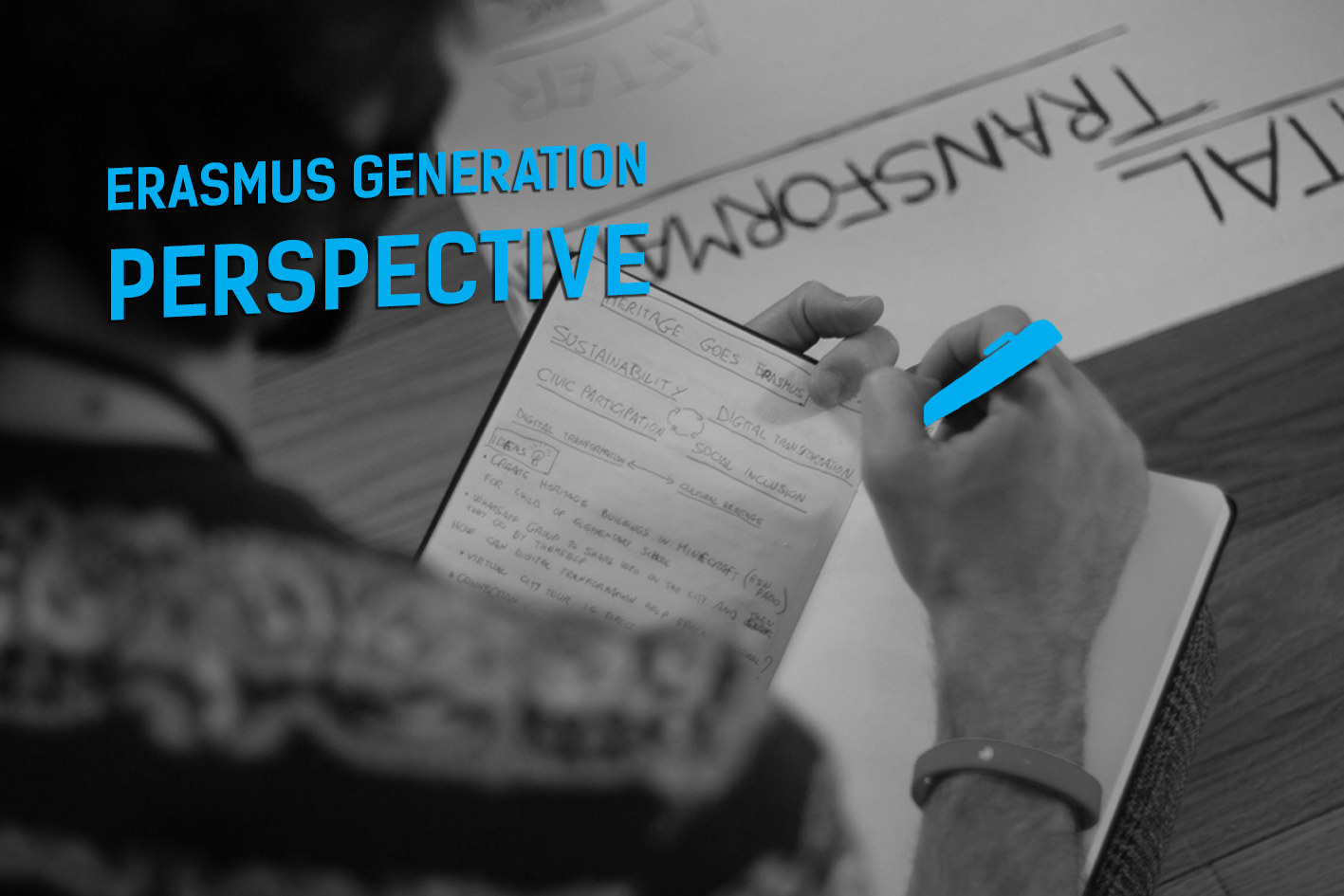
*Erasmus Generation Perspective articles are written by ESN volunteers to share the student voice on current policy developments in the field of international education. The text represents the authors' individual perspective and not an official statement of the Erasmus Student Network.
The European Union has many programmes and events surrounding the topic of youth policy and dialogue between decision-makers and youth. However, it is a complex system, and it is easy to get confused. What is the European Youth Strategy? What are Youth Conferences? What is the role of ESN in these discussions? Let us clarify for you what this is all about, how it works and how ESN contributes to discussions.
First of all, how does the Youth Dialogue work?
The EU set in 2018 the European Youth Strategy 2019-2027, which provides a framework for cooperation in the field of youth policy. The current strategy defines 11 Youth Goals which serve as the basis for discussions that take place during 18-months cycles called Youth Dialogues (EUYD) where ministers set priorities and action plans. These 11 goals are the direct outcome of the 6th EUYD cycle.
As part of the Youth Dialogues, each Presidency of the Council of the EU holds Youth Conferences. They occur once every six months, usually at the beginning of each presidency. It is the occasion for Education, Youth ministers, representatives of political institutions, youth organisations and NGOs to exchange on diverse topics of interest to young people and to define priorities.
The last Youth Conference was held in January 2022 and marked the beginning of the 9th cycle of the Youth Dialogue which is run by the current trio Presidency including France, the Czech Republic and Sweden. France organised this first Conference of the year, which focused on two youth goals: #3 inclusive societies; and #10 sustainable green Europe.
Youth goal #3 “Inclusive Societies” aims at enabling and ensuring the inclusion of all young people in society. Among other things, it addresses legal protection against discrimination, equal access to education, equal access to participation in decision-making, and social support for marginalised groups.
Youth goal #10 “Sustainable Green Europe” aims at ensuring that young people can be active and educated on the green transition. The main targets of the goal concern volunteering opportunities, education, and international cooperation.
Following this Conference, EU ministers met informally with youth delegates for discussions on the topic of youth civic engagement, in particular, to promote sustainable development. The conclusions will be brought up to the Council of the EU and may ultimately be integrated into EU initiatives.
ESN is one of the very few international organisations that take part in Youth Conferences alongside national delegates. So, how exactly does ESN contribute to the conferences?
In order to address the perspective and place of ESN in Youth Conferences, we took insights from the ESN Liaison Officer for EU Affairs and Youth Participation, Iva Ljubičić.
According to her, from the point of view of the decision-makers, ESN’s participation in youth conferences is an opportunity to convey and narrow the issues as a non-profit youth organisation, which enables authorities to have a more direct touch with the problems and necessities of the generation. Hence, ESN has a wide reach, its presence is important and welcomed.
For ESN, the goal of joining Youth Conferences is to focus on Erasmus+ and mobility, as well as promoting ESN goals such as sustainability and inclusiveness. Iva stated that “We aim at inciting decision-makers to make mobility more accessible to underprivileged individuals. We also wish to find solutions on how this can be done through non-governmental organisations.” which in the end resulted in making mobility one of the consultation topics during these conferences.
The role of the Liaison Officer for EU Affairs and Youth Participation, according to Iva, is to take part in programmes, conferences and speeches which relate to ESN such as Erasmus+, youth dialogues, and youth participation to represent and present ESN and advocate for its goals and priorities. “With my participation in these meetings, I keep the network updated on all relevant matters happening on EU levels.” says Iva to elaborate on her specific duties.
The communication between the volunteers of different levels and teams of ESN as well as their contribution to considering youth matters is also one of ESN’s focuses. Iva states that the communication mainly works in one-way, which is informing the National levels and the Education Community of ESN about the updates brought during the conferences.
Therefore, Youth Conferences are an essential part of the dialogue between youth and decision-makers. The participation of ESN in the EU Youth conferences has significance in terms of understanding what the youth needs and expects. The accomplishments made so far show future possibilities for more mobility and exchange reinforcements, as well as the integration of sustainability and inclusivity into exchange programmes by the authorities.

Follow ESN